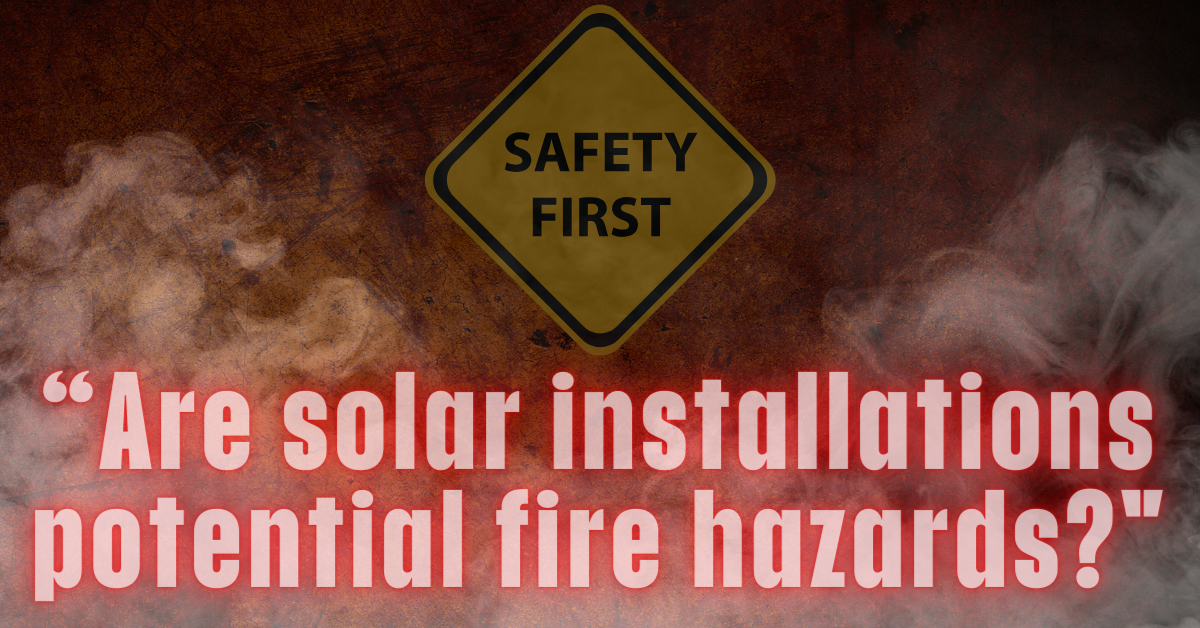Safeguarding Solar: Are solar installations potential fire hazards?
At LTV Technologies and Supplies, as distributors specializing in safety products and solutions for emergency prevention, detection, and resolution within the renewable energy sector, particularly solar installations in South Africa, we welcome the discourse on solar installation safety. Recognized for our expertise in mitigating risks inherent to solar panels, inverters, and batteries, we prioritize ensuring the utmost safety in renewable energy practices.
This Article from Eyewitness News by Amy Fraser5 March 2024 | 17:11 l (Link below)
Are solar installations potential fire hazards?
The solar industry presents a promising pathway towards sustainable energy solutions. However, the rapid global expansion of solar installations, driven by the pressing targets set by countries committed to the United Nations Development as outlined in the Paris Agreement, can inadvertently tarnish its reputation. In South Africa, this urgency is echoed in our National Determined Contribution (NDC) under the Paris Agreement.
PVStop, Thermarestor®, Arcbox, Rapid Shutdown String Types ana Modular Types, Non Ploarity MCB’s are only a few of our key products, vital for ensuring safety in solar installations. However, entering new markets poses challenges, particularly in accurately capturing data on fire incidents related to solar systems. Often, such incidents are not reported separately but lumped under generic categories like electrical failure or fire, making it difficult for insurance companies to recognize them as specific risks.
Certification processes, such as the Certificate of Compliance (COC) for solar installations, may not fully capture all necessary safety requirements due to gaps in regulations and grey areas. With the rapid growth of the solar industry, fueled by investments reaching R17.5 billion in 2023, adherence to safety standards becomes even more critical.
The issue is compounded by the shortage of qualified personnel and the use of inexperienced workers in solar installation projects. This, combined with the evolving technology outpacing regulatory frameworks, creates an environment where safety measures struggle to keep up.
As highlighted by Wynand Engelbrecht, Fire Chief at Fire Ops SA, incidents involving solar installations are on the rise due to faulty connections and inadequate expertise. It’s imperative to focus on prevention, maintenance, and upgrading systems to mitigate potential risks. Technologies like thermography can also play a significant role in identifying potential hazards before they escalate into fires.
In conclusion, while solar power offers immense benefits, it’s essential to address the associated safety concerns proactively. By collaborating with stakeholders and prioritizing safety measures, we can ensure that solar energy remains a reliable and secure source of power for all.
#SolarSafety #RenewableEnergy #SolarIndustry #SafetyStandards #FirePrevention #RegulatoryChallenges #SolarInstallation #RiskMitigation #EnergyTransition #ParisAgreement


I do not even know how I ended up here but I thought this post was great I dont know who you are but definitely youre going to a famous blogger if you arent already Cheers.
Thank you